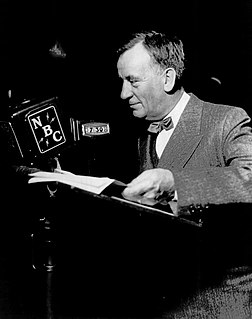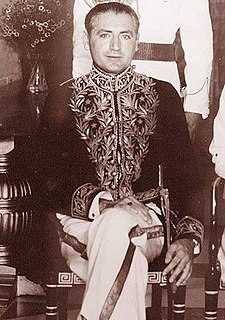A Quote by Thomas Paine
Panics, in some cases, have their uses; they produce as much good as hurt. Their duration is always short; the mind soon grows through them and acquires a firmer habit than before. But their peculiar advantage is, that they are the touchstone of sincerity and hypocrisy, and bring things and men to light, which might have lain forever undiscovered.
Related Quotes
While the body is young and fine, the soul blunders, but as the body grows old it attains its highest power. Again, every good soul uses mind; but no body can produce mind: for how should that which is without mind produce mind? Again, while the soul uses the body as an instrument, it is not in it; just as the engineer is not in his engines (although many engines move without being touched by any one).
Sincerity is the same in a corner alone, as it is before the face of the world. It knows not how to wear two vizards, one for an appearance before men, and another for a short snatch in a corner; but it must have God, and be with him in the duty of prayer. It is not lip-labour that it doth regard, for it is the heart that God looks at, and that which sincerity looks at, and that which prayer comes from, if it be that prayer which is accompanied with sincerity.
We grow great by dreams. All big men are dreamers. They see things in the soft haze of a spring day or in the red fire of a long winter's evening. Some of us let these great dreams die, but others nourish and protect them; nurse them through bad days till they bring them to the sunshine and light which comes always to those who sincerely hope that their dreams will come true.
One is not unpopular because he uses peculiar expressions; that just so happens; such terms become a fad, and by and by everybody, down to the last simpleton, uses them. But a person who follows through an idea in his mind is, and always will be, essentially unpopular. That is why Socrates was unpopular, though he did not use any special terms, for to grasp and hold his 'ignorance' requires greater vital effort than understanding the whole of Hegel's philosophy.
When I was a fairly precocious young man I became thoroughly impressed with the futility of the hopes and strivings that chase most men restlessly through life. Moreover, I soon discovered the cruelty of that chase, which in those years was much more carefully covered up by hypocrisy and glittering words than is the case today. By the mere existence of his stomach everyone was condemned to participate in that chase. The stomach might well be satisfied by such participation, but not man insofar as he is a thinking and feeling being.
Both ground- rents and the ordinary rent of land are a species of revenue which the owner, in many cases, enjoys without any care or attention of his own. The annual produce of the land and labour of the society, the real wealth and revenue of the great body of the people, might be the same after such a tax as before. Ground-rents, and the ordinary rent of land are, therefore, perhaps the species of revenue which can best bear to have a peculiar tax imposed upon them.
Under capitalism the common man enjoys amenities which in ages gone by were unknown and therefore inaccessible even to the richest people. But, of course, these motorcars, television sets and refrigerators do not make a man happy. In the instant in which he acquires them, he may feel happier than he did before. But as soon as some of his wishes are satisfied, new wishes spring up. Such is human nature.
You might prove doctrine from the Bible till doomsday, and it would merely convince a people, but would not convert them. You might read the Bible from Genesis to Revelations, and prove every iota that you advance, and that alone would have no converting influence upon the people. Nothing short of a testimony by the power of the Holy Ghost would bring light and knowledge to them -- bring them in their hearts to repentance. Nothing short of that would ever do.
But yet it is evident that religion consists so much in affection, as that without holy affection there is no true religion; and no light in the understanding is good which does not produce holy affection in the heart: no habit or principle in the heart is good which has no such exercise; and no external fruit is good which does not proceed from such exercises.
No one was ever born without that light or flame of life. Some event, some person stifles or drowns it altogether. I was always tempted to resuscitate such men by my own joyousness or luminosity.When I break glasses in a night club, as the Russians do, when my unconscious breaks out in wild rebellions, it is against life which has crippled these idealistic, romantic men. I respect these men, cold, pure, faithful, devoted, moral, delicate, sensitive, and unequal to life, more than I respect the tough-minded ones who return three blows to one received, who kill those who hurt them.





































